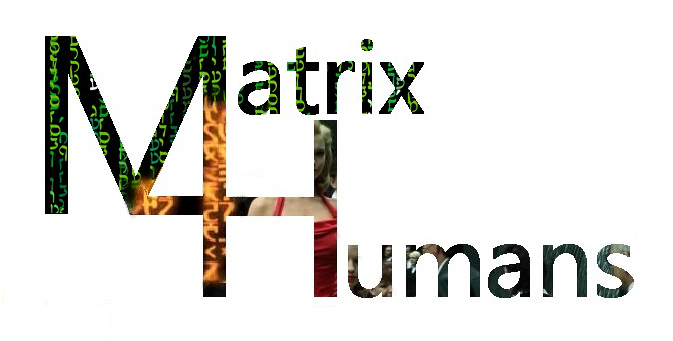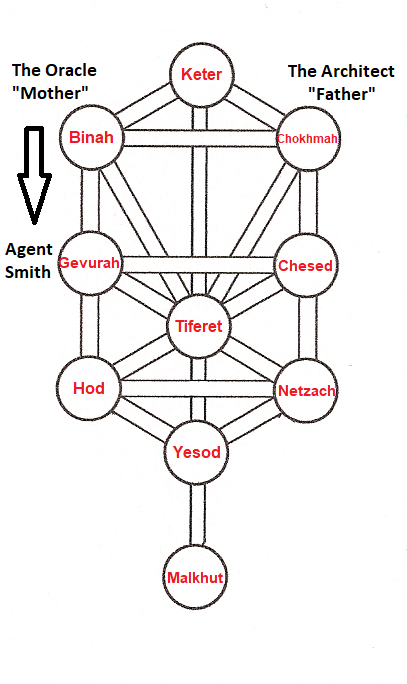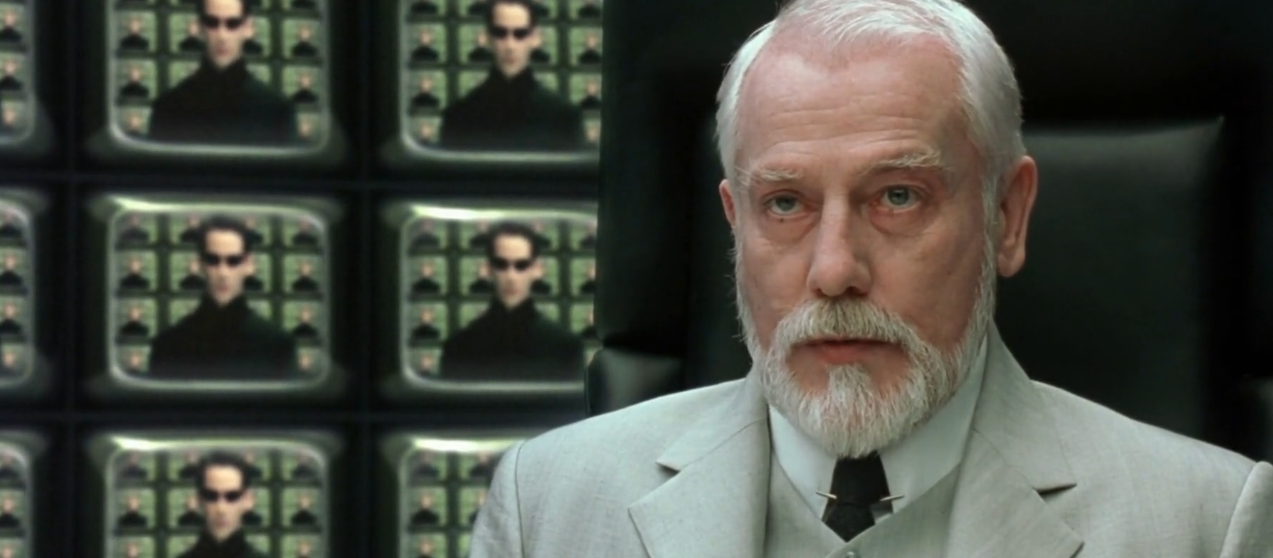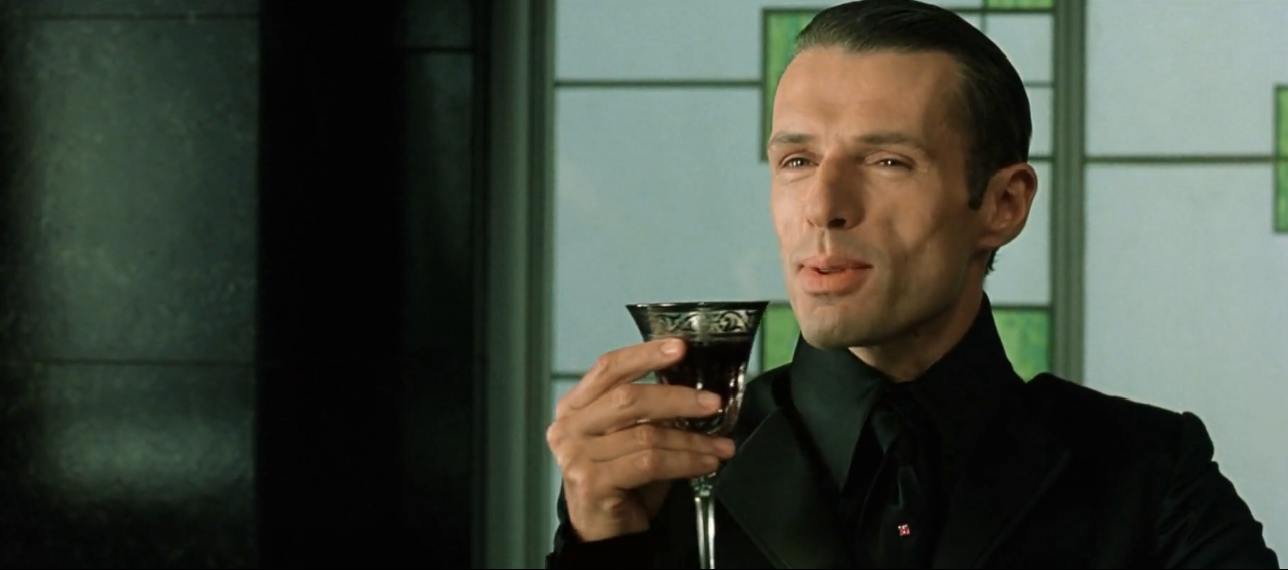Smith: Judgment Toward an End
As previously mentioned, the Matrix is not the typical story with “good guys and bad guys.” This even applies to Agent Smith (played by Hugo Weaving), who functions in the role of judgment – the emanation of Gevurah.
In this article, we introduce a few concepts related to this highly complex character. (We explore these and other ideas further in our article on Evil and Imperfection and in the “Matrix 4” files in the Knowledge Base.)
He, like all the characters, is here “to do what he is here to do.”
As the Keymaker so eloquently stated:
I know because I *must* know. It is my purpose. It is the reason I am here. The same reason we are *all* here.
Consider for a moment the idea that Smith is the force that causes Neo to “go further,” which ends up bringing about the peace at the end of The Matrix Revolutions. Smith actually ends up serving an important role in making that happen.
This can cause some reflection on what Smith expressed to Sati:
“I’m not so bad once you get to know me.”
As we show, there is hidden truth in that statement.
First, we present a handful of interesting tidbits …
Is the Oracle the Mother of Smith?
One of the more curious dialogs puzzling people since 2003 has been this from The Matrix Revolutions:
Oracle: You are a bastard.
Smith: You would know, Mom.
Why does Smith refer to her this way?
This is where templates make great visual aids. The Architect and the Oracle are the sophisticated programs that created the Matrix:
Architect: “If I am the father of the Matrix, she (the Oracle) would undoubtedly be its mother.”
As discussed in our introductory materials, Chokmah (Wisdom) and Binah (Understanding) are respectively the father and mother of the right (expansive) and left (restrictive) sides.
The lower Sefirot on each side are ‘reflections’ of those. We can say they ‘derive’ from them.
In our profile on Morpheus, we mentioned how his ‘belief’ emanated from the singularity of the “right side” of which the Architect is the ‘father’ (at Chokmah/Wisdom, above).
Faith, like the past, has a very singular dimension to it. (Recall Morpheus’ cave speech was all about the past as well as much of what the Architect conveyed to Neo.
As Binah/the Oracle creates the opportunity of ‘choice,’ it is foundational to the concept of ‘judgment.’
This quote from the Zohar, explains the ‘mom’ mystery in Smith’s comment. In kabbalah, the attribute of Gevurah, in addition to being called ‘judgment,’ is also called ‘strength’:
From the side of the “Mother” (Binah) comes “Strength” (Gevurah) … the Supernal Mother does not in Herself signify judgment, yet judgment issues from Her side, since Gevurah emanates from her.
Zohar, 2:64b
As the Zohar explains, Gevurah (Smith) issues from (is the ‘son’ of) the Supernal Mother/Binah (the Oracle). ‘
Mystery solved … for now.
Could it be … Satan?!
We see Smith acting in a particular aspect of judgment in the very first interaction he had with Neo. When interrogating “Mr. Anderson,” he makes serious accusations against him, as Neo was ‘no angel’ before he embarked on the ‘path.’
As Smith pointed out in this scene, Mr. Anderson (Neo) was:
“… guilty of virtually every computer crime we have a law for.”
In this way, Smith fulfills the role of ‘accuser,’ which in kabbalah is associated with the figure of ‘Satan.’ The Hebrew term, ‘hasatan,’ means ‘the accuser.’ He is the “accusing angel.”
Recall, in the Matrix, the program world represents the angelic world – as we discussed in our previous article on the four worlds.
Agent Smith expresses his role as ‘accuser’ and ‘judge’ in this scene with Morpheus from the first movie:
“Did you know that the first Matrix was designed to be a perfect human world? Where none suffered, where everyone would be happy. It was a disaster. No one would accept the program. Entire crops were lost. Some believed we lacked the programming language to describe your perfect world. But I believe that, as a species, human beings define their reality through suffering and misery. The perfect world was a dream that your primitive cerebrum kept trying to wake up from. Which is why the Matrix was redesigned to this: the peak of your civilization. … I hate this place. This zoo. This prison. This reality, whatever you want to call it, I can’t stand it any longer. It’s the smell, if there is such a thing. I feel saturated by it. I can taste your stink and every time I do, I fear that I’ve somehow been infected by it.”
Is That Car Inspected?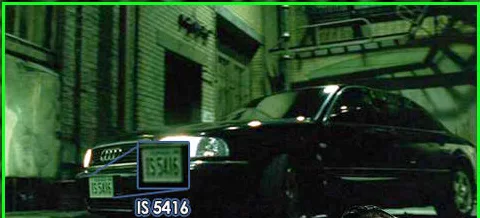
As ‘judgment,’ Smith is also the concentration of power that eventually becomes focused on destruction.
This occurs once he is, “no longer an agent of the system – unplugged.”
Interestingly he thanks Neo for “setting him free.” Unbeknownst to Smith, this change in his status is also part of the greater series of events required to eventually set all of humanity free.
As Neo cleverly expresses to him at the end of Matrix Revolutions, “it was inevitable.”
Functioning independently from everything else, the attribute of Gevurah becomes 100 percent “unmitigated judgment.” Its purpose turns to one of ‘destroying,’ be it the annihilation of humans, Zion, the Matrix – even the machine world. This, as stated, is necessary.
There’s a great visual clue, given to us is found at the beginning of the second movie, where Agent Smith arrives in a car that has a license plate that reads, “IS 54 16” – a direct reference to this verse:
“Behold, I have created the smith that blows the coals in the fire, and that brings forth an instrument for his work; and I have created the waster to destroy.” – Isaiah 54:16
What’s easy to miss in the above verse is that the Creator also made the ‘smith’ for this purpose of ‘total destruction.’
So is what Smith is “here to do,” destroying the Matrix and program-machine worlds? Why? How does this make sense? And how does Smith, of all the characters, have the power to do this?
The concept of Gevurah/Judgment stems from the concept of tsimtsum – constriction. Unlike any other force, tsimtsum was the first ‘act’ of the Creator – resulting in ‘otherness,’ opposites, etc.
Tsimtsum is THE greatest distinct power, making Smith the strongest of all Neo’s ‘nemeses.’
Smith represents the more overt and hostile aspect of the barriers that Neo and the others face. There is also a more subtle, seductive force, as will see.
